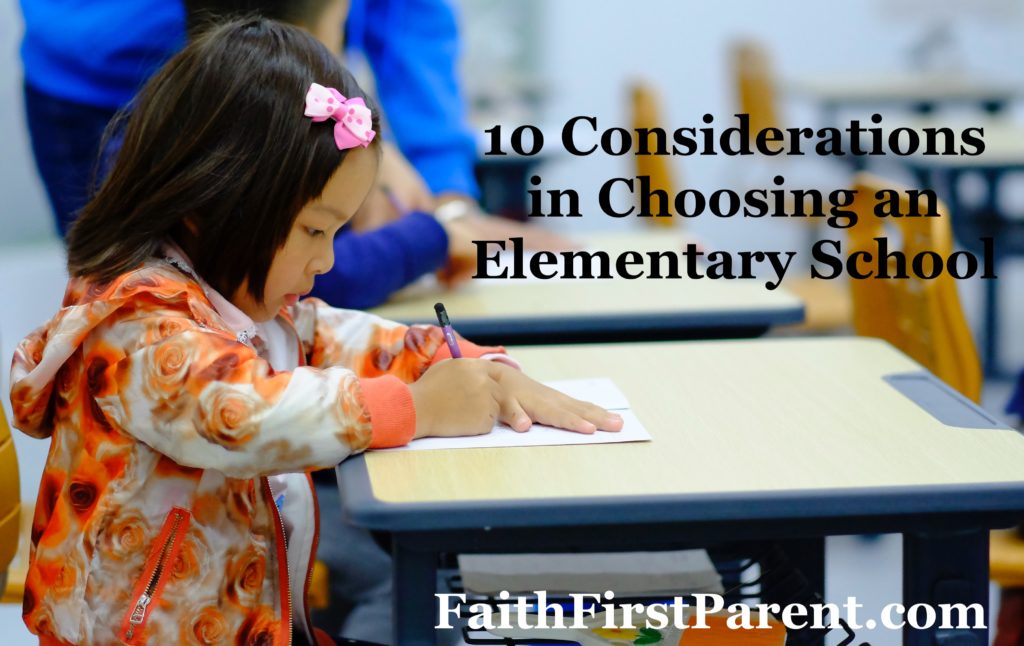10 Considerations in Choosing an Elementary School
There are a number of considerations in choosing an elementary school. The process can be a nerve-racking experience for parents. Public or private? Faith-based or secular? Large school or smaller school? Moving from a preschool your child liked, with a teacher you’ve come to know and love can make it even harder for both you and your child.
I highly recommend touring the schools you are interested in having your child attend. Meet the administrators, teachers, and others your child will have direct contact with at school. Ask a lot of questions. Request the parent handbook and read it. Talk to parents who’s children attend the school you’re considering for your child.
10 Considerations in Choosing an Elementary School
- Values and Mission Statement
Knowing what values drive the culture of a school will help you decide if the school is a good fit for your child and the family. - Qualified, Caring, and Accountable Teaching Staff
Are teachers certified within their specific roles? The love of students and learning as well as a desire to assist children to succeed makes a great teacher. Accountability to the subject matter makes a difference too. A teacher is to educate, not indoctrinate. - Administration
Administrators who are actively involved in the everyday culture of the school will be in the know and able to answer questions and alleviate concerns. - Safety
Check on safety procedures and security protocols. How are parents notified if there’s an emergency or accident at school? How are behavioral issues handled? - Class Size
How large are classes at each grade level? What’s the student-teacher ratio? - Remediation and Acceleration
What services are available for students who need additional assistance in learning or need to be challenged? How are the needs of each learner met? - Parent Involvement
What options are available for parents who choose to be involved at school: PTA/PTO, room parent, classroom volunteer, playground helper, etc.? - Communication
Does the school district have a parent portal or other online communication system allowing you to know what your child is learning? School calendars, field trips, and other important information is typically found online. - Opting Out
What’s the process for opting out of lessons or curriculum you choose not to have your child take part in at school? - Making a Smooth Transition
What strategies are encouraged to help your child make a smooth transition to the new school?
If you’ve been a FaithFirstParent.com reader, you know I rarely use the negative when offering parenting tips. In this case, it’s important I do just that: Do not abdicate your rights as a parent over the education of your child. Teachers, school administrators, special education staff, and others do not have the last word in curriculum, morals, and cultural influences. You are your child’s primary teacher, the school is the support network.
The next step in your child’s education is exciting! Be wise and discerning in making educational decisions. Enjoy watching your child grow and mature.
If any of you lacks wisdom, you should ask God,
who gives generously to all without finding fault,
and it will be given to you.
James 1:5
© 2021 Becky Danielson. All rights reserved.
If this post is encouraging, please take a moment to subscribe to the Faith First Parent e-newsletter or share the post with a friend.
Photo by Jerry Wang on Unsplash

